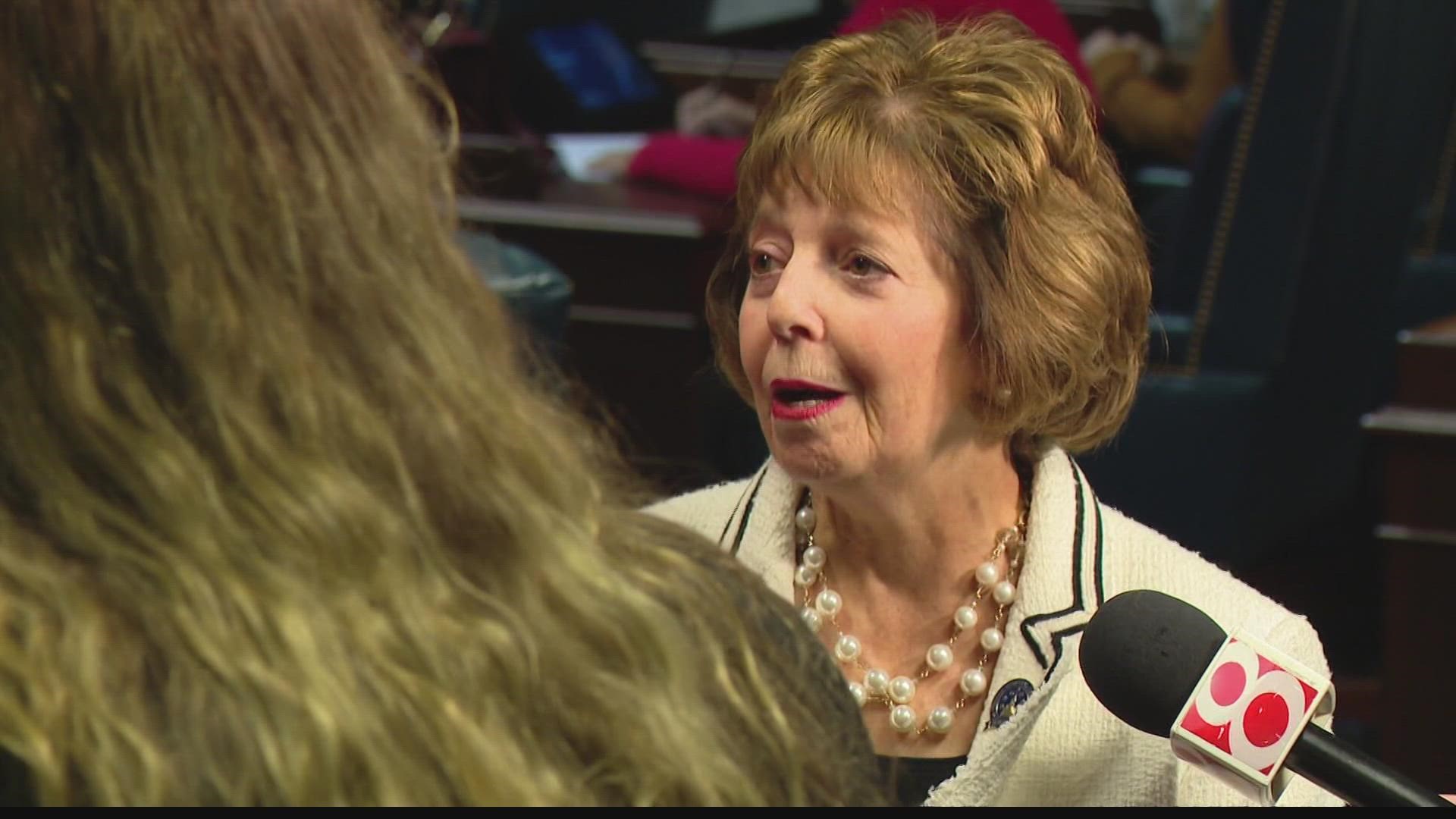INDIANAPOLIS — EDITOR'S NOTE: The video above is a previous report looking at what can and cannot be taught under HB 1134.
An amended version of the controversial House Bill 1134 passed an Indiana House committee Wednesday.
Last week, more than 200 people signed up to speak on the education bill — most wanted senators in the Education and Career Development Committee to vote against it. There was no public comment on the amended bill Wednesday.
The committee passed the bill 8-5 after additional amendments. Next, the bill will go to the Senate, where it will get a third reading before it can return to the House for approval again.
Even after amendments, the bill includes a section that prevents educators from teaching one sex, race, ethnicity, religion, color or national origin is "inherently superior or inferior" to another. It also would stop educators from saying one of those groups is "inherently responsible for actions committed in the past" by others of that same group.
Educators have harshly criticized the bill, calling it unnecessary.
"I know that parents already have the right to be on committees. They have the right to see instruction materials and sit on textbook adoption committees. I know there are procedures in place for grievances with whatever happens." said Dr. Gwendolyn Kelly.
Last week, State Sen. Linda Rogers (R-Granger), who sponsored the bill, called it the "New HB 1134," despite similarities in the amended versions as the original.
13News asked Rogers if a teacher can teach that American slavery was based in part on a belief that white people were superior and Black people were inferior.
"Of course, they can always teach what is in history,' she said. "So we all know what is in history, but they can't be blamed for what happened. But, we don't want to not let people know what happened in history and be able to teach factual events."
To clarify we asked, "Can [teachers] blame the leaders of the past for what happened?"
"No, I don't believe you should," Rogers said. "If somebody did something in the past that was wrong, you would, I guess I don't like to throw blame without knowing and having been there. I mean we can say that we don’t particularly like what happened in the past."
When asked if that also applied to supporters of Jim Crow laws and segregationists she said, "Well, you can maybe blame them, but you can't blame the people today."

